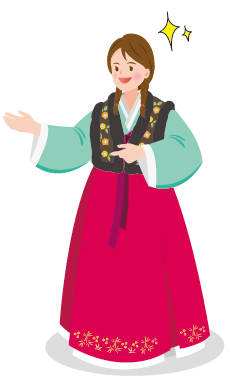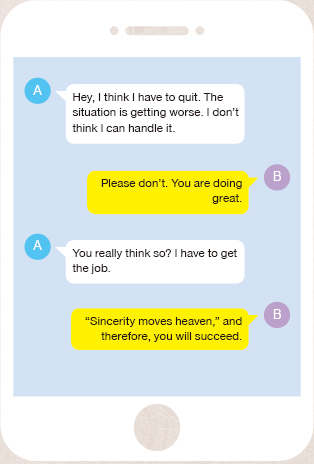
Proverbs are the wisdom of our ancestors, passed down from one generation to another. These phrases sometimes inspire us and give us the courage to endeavor. Korea also has famous proverbs that have been passed down for centuries. Through these proverbs, Koreans were taught to learn from their ancestors and make wise choices. These wise words can be applied to anyone in the world, even if they are not Korean.
Observe the following three proverbs that we have selected. These proverbs are widely used in our daily lives, even in interpersonal relationships. Therefore, dialogues that indicate the potential situations wherein these proverbs may be used, and that you may have experienced at least once, have been provided below each proverb.
Saving a drowning man, and he takes you a bundle.

• Korean Pronunciation
Mureppajin saram guhaejuni bottari naenoheura handa.
• In English
The person who never felt grateful.
It refers to a situation wherein someone beholden to you behaves as if they have the upper hand.
• Origination
One day, a man was using a bridge to walk across the river. Suddenly, he noticed that there was someone in the water that was drowning and asking for help. Although it was dangerous, the man dove into the water to rescue the person.
After being rescued by the other person, they instead defamed the rescuer as a thief, claiming that the man stole money from his bundle. However, this money didn’t exist. The rescued person just wanted to take away the money of his lifesaver. The rescuer felt embarrassed. They went to a district magistrate to solve the issue. The district magistrate figured out that the rescued person was lying.
“Since the empty bundle is not yours, you should give the bundle to the man who rescued your life.”
The person lost his bundle due to his lies.
To fix the barn after the horse is stolen.

• Korean Pronunciation
So ilhgo oeyanggan gochinda.
• In English
To cover the well after the child has been drowned in it.
“Fixing the barn after the horse is stolen” means that there is no use in trying to improve the situation after things have already gone wrong.
• Origination
The farmer and his wife just dawdled in the blanket. “Feed fodder to the cow,” the wife said. The farmer pretended he hadn’t heard it. “Moo, moo,” the hungry cow ran into the barn. The farmer and his wife finally woke up. The farmer’s wife exclaimed, “Honey, come here! The barn door keeps rattling!” The farmer replied, “I will fix it tomorrow.” That night, it rained heavily. The wind was so strong that the barn shook all night. Inevitably, the barn collapsed and the farmer regretted not fixing the door. Later, he went to fix the barn door. Passers-by observed this and said dumbfoundedly, “Oh, my God! What are you fixing the barn door for?”
Sincerity moves heaven.

• Korean Pronunciation
Jiseong-i gamcheonida.
• In English
God helps those who help themselves.
“Sincerity moves heaven” means if you truly want something and try to put everything into it, heaven will be moved and will help you reach your goal.
• Origination
It is the story of how heaven was moved by the friendship of two kids, Jiseong and Gamcheon. Jiseong was a person with lower-body paralysis, and Gamcheon was blind. They were always together. Jiseong was Gamcheon’s eyes, and Gamcheon was Jiseong’s legs. One day, they found a big piece of gold. However, neither of them was greedy. They split the gold in half, dedicated it to a temple, and prayed for 100 days. After they prayed, heaven granted their wishes in response to their prayers. Jiseong could walk and Gamcheon opened his eyes.
* Jiseong means “Sincerity,” and Gamcheon means “Move heaven” in Korean.
Sim Jun-sung
dnsen07@uos.ac.kr
Heo Hyang-ki
ashely1110@uos.ac.kr
Kim Na-yeong
kny0218@uos.ac.kr

